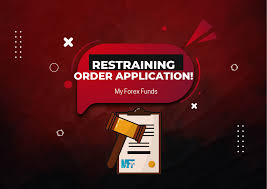Austin Forex Fraud Austin, In recent years, the city of Austin, Texas, known for its tech startups, vibrant music scene, and progressive culture, has seen a troubling rise in financial crimes, particularly in the realm of forex (foreign exchange) trading. The term “Austin forex fraud” has begun to surface frequently in news reports, legal filings, and discussions among the business community, signaling a growing issue that residents and investors need to be aware of.
Understanding Forex Trading and Its Risks
Foreign exchange trading, or forex, involves buying and selling currencies with the goal of making a profit from exchange rate fluctuations. While legitimate forex trading can offer significant returns, it is also a complex and volatile market. The allure of high returns has made it a fertile ground for fraudsters who prey on individuals unfamiliar with the intricacies of forex.
In Austin, as in many other places, scammers often present forex trading as a “get rich quick” scheme, promising unrealistic returns with little to no risk. This misrepresentation of forex trading has drawn many unsuspecting individuals into fraudulent schemes, resulting in significant financial losses.
How Austin Forex Fraud is Unfolding
Several high-profile cases of forex fraud have come to light in Austin in recent years, highlighting how sophisticated these scams can be. Fraudsters often use online platforms, social media, and even in-person seminars to convince victims to invest in what appears to be legitimate forex ventures. They frequently claim to have proprietary trading algorithms or insider knowledge that guarantees profits.
One common tactic is the creation of “Ponzi” or pyramid schemes under the guise of forex trading. In these scams, the perpetrators use funds from new investors to pay returns to earlier investors, creating the illusion of profitability. Eventually, when new investments dry up, the scheme collapses, leaving most participants with heavy losses.
Red Flags to Watch For
There are several warning signs that investors in Austin—and elsewhere—should be aware of when considering forex opportunities:
- Unrealistic Promises: If someone is guaranteeing high returns with no risk, it’s almost certainly a scam. Legitimate forex trading is risky and returns are never guaranteed.
- Unregistered Brokers or Firms: Always check whether the broker or firm offering forex services is registered with the U.S. Commodity Futures Trading Commission (CFTC) or the National Futures Association (NFA). Many forex fraudsters operate unlicensed, which makes it easier for them to vanish once they’ve taken investors’ money.
- Pressure Tactics: Scammers often pressure potential victims to invest quickly, claiming that opportunities are limited or that they must act now to secure their profits.
- Lack of Transparency: Legitimate forex firms are upfront about their fees, trading strategies, and risks. If a company is vague or refuses to provide details, it’s a major red flag.
The Legal Landscape in Austin
Local authorities in Austin, including the Texas State Securities Board (TSSB), have taken steps to combat forex fraud by issuing warnings and pursuing legal action against perpetrators. Federal agencies such as the Securities and Exchange Commission (SEC) and the Federal Bureau of Investigation (FBI) have also been involved in prosecuting large-scale frauds.
However, enforcement can be challenging. Forex fraud schemes are often difficult to trace, especially when funds are moved offshore or disguised through complex financial instruments. This makes it crucial for investors to conduct thorough due diligence before getting involved in any forex trading opportunities.
Protecting Yourself from Forex Fraud
For those in Austin considering forex trading, the key to avoiding fraud is education and skepticism. Here are some ways to protect yourself:
- Research: Before investing, thoroughly research the broker, platform, or firm you plan to use. Check their registration status with relevant financial authorities.
- Ask Questions: Don’t be afraid to ask for details about the trading strategy, risks involved, and the history of the company. A legitimate business will gladly provide this information.
- Consult Experts: If you’re unsure about a forex opportunity, consult with a licensed financial advisor or an attorney familiar with securities law.
- Avoid High-Pressure Sales: Never invest money because you’re feeling pressured or rushed. Scammers often use time-sensitive pitches to prevent you from thinking critically about the opportunity.
Conclusion
As Austin continues to grow as a hub for innovation and entrepreneurship, it is also becoming a target for financial fraud, including forex scams. While forex trading is a legitimate financial market, it is crucial for investors to be aware of the risks and to recognize the warning signs of fraud. By staying informed and vigilant, Austinites can protect themselves from falling victim to these schemes and ensure their investments are safe. If you suspect you have been targeted by a forex scam, it is important to report the incident to local authorities or financial regulators immediately.
The rise of Austin forex fraud serves as a reminder that even in a thriving city like Austin, financial criminals are always on the lookout for new victims. Awareness and caution are the best defenses against becoming one of them.
You Might Also Like These:
Prepared for a Cyber Attack vs. Incident Recovery: A Strategic Approach to Cybersecurity
Mimecast: 30 Days of Data Recovery for Cyber Resilience
Recovery Timeline After a Cyber Incident: A Comprehensive Guide
Pre-Disaster Recovery Plan for Cyber Attacks: A Vital Component of Cyber Resilience
Cyber Fault-Tolerant Attack Recovery: Enhancing Resilience in Digital Security

